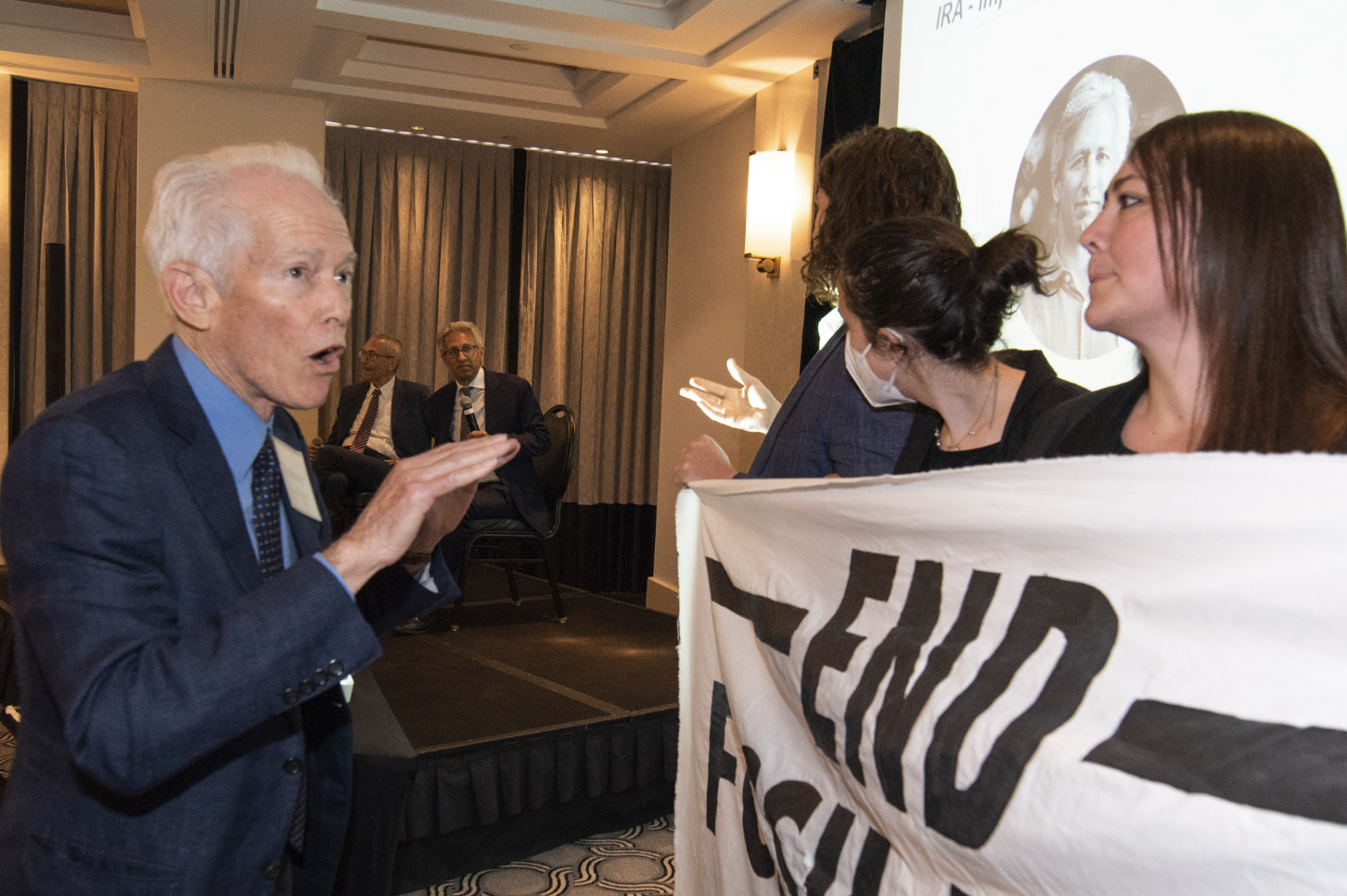
A newly formed group of climate activists plans to disrupt a high-profile D.C. tradition this weekend: The White House Correspondents’ Dinner.
Visitors to the Climate Defiance website are greeted with a full-page video featuring images of President Joe Biden interlaced with burning forests, storm-ravaged neighborhoods, cracked ice sheets, and churning oil rigs.
“Our calls have gone unanswered, our letters unopened, our cries unheard. Only widespread, nonviolent uprisings will save us,” the narrator declares. “We will not stop. We do not seek to move one player; we seek to change the game.”
Youth-led demonstrators, according to the group’s site and social media feeds, will form a blockade Saturday evening around the dinner’s annual venue at the Washington Hilton as part of a push to end fossil fuel extraction on federal lands and waters.
Alaina Giglio, an organizer with Climate Defiance and a sophomore at American University, says she sees the event as an opportunity to draw attention to climate change in the presence of the most prominent figures in media and government. President Biden and Vice President Kamala Harris are expected to attend.
“We have realized over the years that petitions, asking hard-hitting questions and being in dialogue hasn’t been that effective. Politicians have stopped listening to us, so we’re using civil disobedience to make our statement heard,” Giglio told WTOP.
“We wanted to do something different, something that would catch the public eye. The White House Correspondents’ Dinner, specifically, is hugely publicized. Hopefully, this will reach all across the nation, and Biden will find it impossible to ignore.”
Climate Defiance is one of several groups adopting disruptive, confrontational and sometimes theatrical tactics to demand immediate action amid urgent calls from the world’s scientists to curb fossil fuel use.
Just in the last week in the D.C. region, protesters have marched en masse, stalled major roadways, and even tossed paint on artwork in an increasingly desperate plea for world leaders to prevent the worst damage from climate change.
But instead of resorting to a more transitory tactic like a roadblock, Giglio said Climate Defiance chose to focus its first major action on a highly visible event that would spark a lasting conversation.
Among Climate Defiance’s members are activists who participated in a similar blockade with like-minded goals at the Congressional Baseball Game last summer.
“There comes a point where you can no longer stand off to the side and show your demands through non-disruptive work, because people stop listening,” Giglio said. “If it doesn’t affect them, there’s not much that they do. We’ve realized that we need to diversify our tactics in order to be heard and in order for our message to actually be taken seriously.”
In the months since announcing their plans, Climate Defiance members have been busy confronting some of the Biden administration’s key climate figures over what they perceive as shortcomings in halting federal gas and oil spending.
Despite investments in clean energy and proposed limits on power plant emissions, climate activists argue that Biden’s approval of drilling permits on federal land, such as an $8 billion oil drilling project in Alaska, undermines the promises he campaigned on — and in many cases, earned their support with.
On Tuesday, Giglio and other Climate Defiance activists disrupted an event featuring John Podesta, Biden’s senior clean energy adviser, chanting “keep your promise, no new drilling.”
A day later, the group treated White House climate adviser Ali Zaidi similarly at a speech hosted by Foreign Policy. A video posted to the group’s Twitter feed showed security pushing protesters away from a door.
“It’s scary doing this kind of action, you get daggers from the eyes of the people on the stage. It’s intimidating, but what held us together as a group is the idea that we’re here not out of hatred or a desire, necessarily, to cause chaos and disruption, but to share something that is so important to us,” Giglio said.
“There has been a little bit of pushback from people at those events. They’re often confused, because they ask us why we see them as enemies, which we don’t. But we’ve realized that without disruption and making a scene, people just don’t really seem to care. We’re not just trying to save our lives, we’re trying to save yours, as well.”
WTOP has reached out to the White House Correspondents’ Association for comment.








